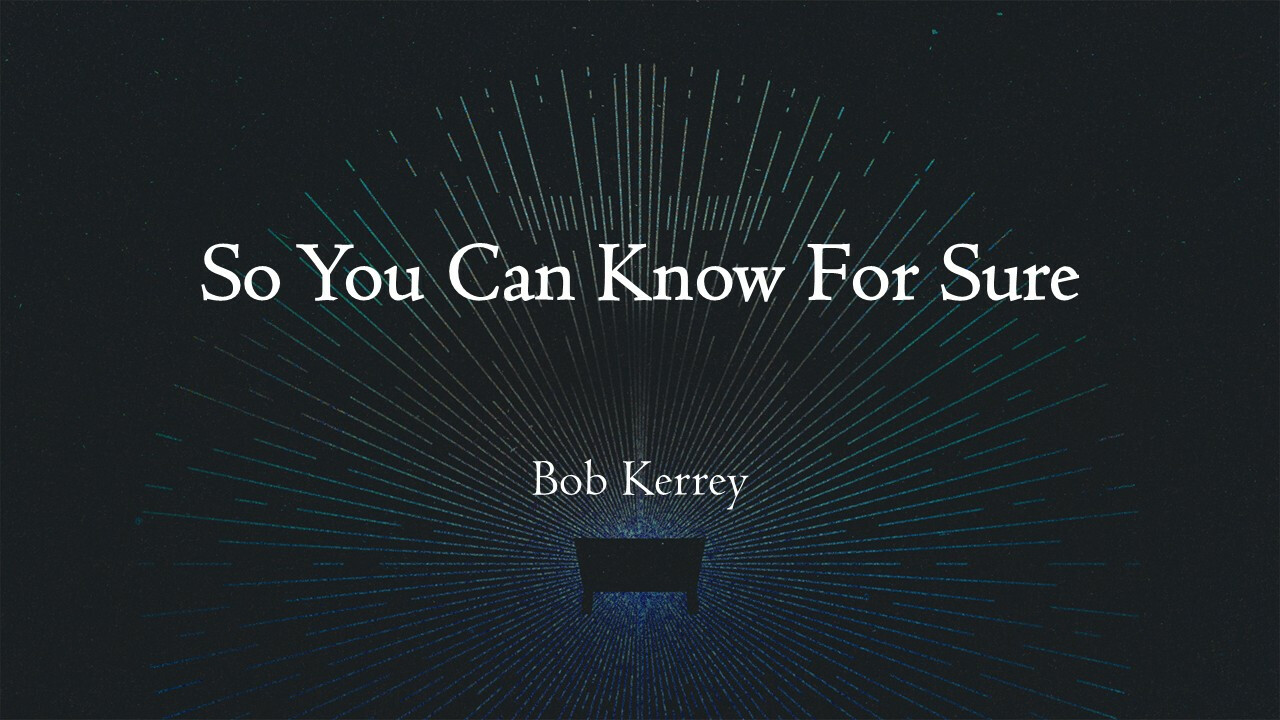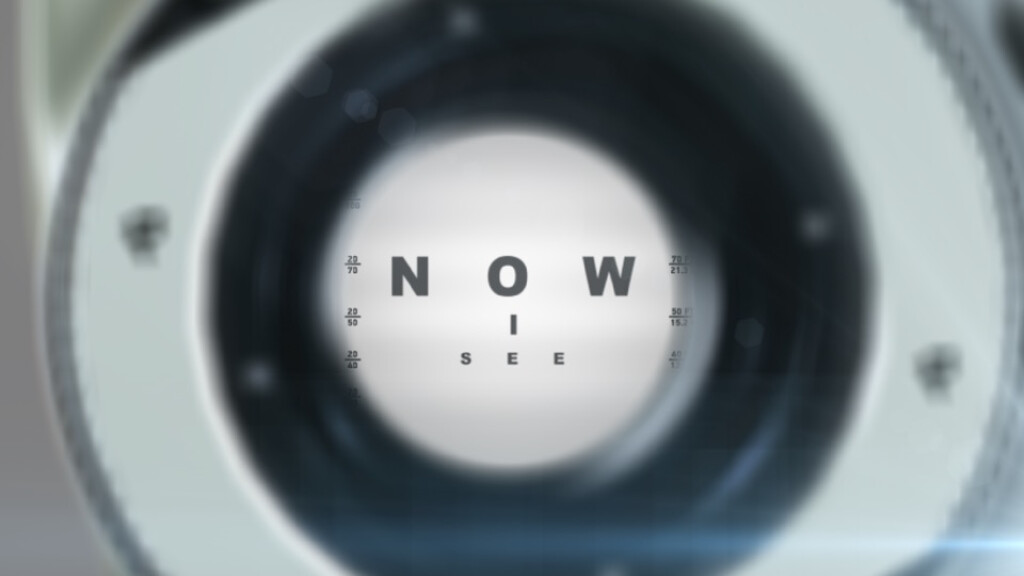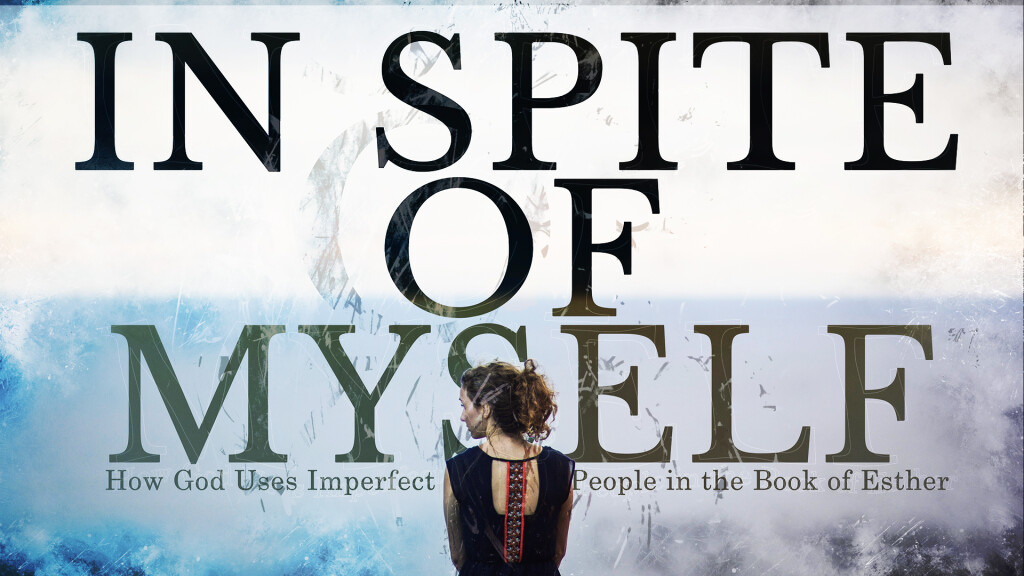
God
At one time or another we have all wished for a windfall but the wonderful truth is that God has provided us with the greatest windfall of all—the power of His resurrection.

The title of this sermon series, “So You Can Know For Sure” is taken from the stated purpose for Luke’s gospel given in its introduction. Luke wants to set the record straight for his friend, Theophilus, so he can know for sure the most important things about Jesus.

At one time or another we have all wished for a windfall but the wonderful truth is that God has provided us with the greatest windfall of all—the power of His resurrection.

Same Series, New Look!
Deadened by the daily grind, drifting in a sea of confusing cultural ideologies, blinded by what we’ve always been taught or been told, we wonder. What is true? What is real? What is the meaning of all this? Why all the suffering and injustice? How can I find fulfillment? How can I make a difference? How can I live without regrets?
Jesus gives signs. The signs point to a new, full life that he offers. But neither Jesus nor the signs nor the new life fit into the tidy religious box of our expectations. And so they are easily misread or distorted or dismissed altogether. They demand openness. And eyes to see. And faith.
The Gospel of John was written to help everyone see the signs--signs that can lead us to a new, full life. Whether you're the most hardened skeptic or the most ardent fan, join us, expecting to think hard and fresh, as we study our way through the Gospel of John. This is for you.

Everybody has a profile. And our profile is under construction. It's not finished yet.
Our profile is not necessarily what we post on social media, or what we put on our resume. It's who we really are. Or perhaps more to the point, it's who we are truly becoming.
In this sermon series, we're going to take a closer look at a number of Christ-like characteristics worth striving for and being known for.
If, by the grace and power of God, we could somehow pour a little more of these traits into our profile, we would be better people, and the world would be a better place.

Join us on a cross-ministry road trip as we take an inside look at the ministries of Moon Valley. Each week our ministry leaders will share what's happening in their ministry and why it's so important.
Get any group of people together long enough and they will develop a culture. They will develop patterns, traditions, values and goals.

Life is full of acquired tastes. While some are best left alone, others can be a source of great joy!

The book of Esther recounts a story that is intriguing. And strange. It's a story that makes preachers squirm. God is never mentioned. Not once. And nobody prays. On the holiness-to-hot-mess continuum, the main character, Esther, is more on the hot mess side. She's a morally questionable beauty contestant who hides her Jewish identity and spends the night with a pagan king to whom she is not married. And when she gets some power, she uses it to exact revenge on her enemies.
In Christian circles, there seems to be a tendency to cast Esther in the mold of a hero, ignoring the questionable material and focusing instead on the more laudable and preachable phrases, like "for such a time as this" or "If I perish, I perish." To be sure, God does use Esther in wonderful, history-making ways, but to be honest, she doesn't quite fit the hero mold. And that's good news for most of us. Because we don't either. Join us as we study through the book of Esther.

Hide. Run. Withdraw. Shut down. Clam up. Fall back on clichés. Fake it. It’s what we tend to do in our relationship with God when things aren’t going well-when we’re bothered by injustice, faced with failure, plagued with doubts, oppressed by illness, dogged by a depressing darkness in our souls.
If you were a good person, you wouldn’t feel this way, right? Must be something uniquely and irreparably wrong with you, right? Better hide that internal mess so nobody finds out, right?
Wrong! In the Psalms we find followers of God--some of them Bible heroes--variously and openly struggling with anger and doubts and questions and disillusionment. They don’t stuff it; they sing about it. And sometimes there’s cursing involved. Far from hiding this kind of thing in the fine print, it’s smack dab in the middle of the Bible, showing us how to be honest, authentic, real--and liberated by it. How refreshing! Join us as we study the Psalms.


Deadened by the daily grind, drifting in a sea of confusing cultural ideologies, blinded by what we’ve always been taught or been told, we wonder. What is true? What is real? What is the meaning of all this? Why all the suffering and injustice? How can I find fulfillment? How can I make a difference? How can I live without regrets?
Jesus gives signs. The signs point to a new, full life that he offers. But neither Jesus nor the signs nor the new life fit into the tidy religious box of our expectations. And so they are easily misread or distorted or dismissed altogether. They demand openness. And eyes to see. And faith.
The Gospel of John was written to help everyone see the signs--signs that can lead us to a new, full life. Whether you're the most hardened skeptic or the most ardent fan, join us, expecting to think hard and fresh, as we study our way through the Gospel of John. This is for you.

We have been called to walk closely with the Creator of the universe and rely fully on the Holy Spirit. It is all a matter of trust. Trust in Him as he calls us to be the light of the world.